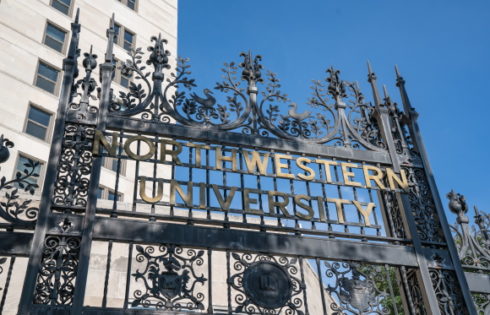
UPDATED
The ‘no finding’ option is ‘discourage[d]’
While Boston College investigated allegations that a male student reached up a female student’s dress as he was crossing a dance floor, the chair of the hearing board told a senior official that the board was “struggling” to reach a verdict.
“John Doe” had claimed that another male student privately confessed to grabbing the woman. He had video surveillance that he claimed exonerated him. The state police were still conducting forensic tests on Doe’s evidence as the campus adjudication neared its end.
Then-Dean of Students Paul Chebator made it easy for the board: He “discourage[d]” the adjudicators from issuing the “no finding” option that they were considering.
This was too much for the 1st U.S. Circuit Court of Appeals, which has joined its siblings in the 2nd and 6th Circuits in laying down rules on “basic fairness” in Title IX proceedings.
The 1st Circuit ruled Friday that Boston College breached its contract with Doe and deprived him basic fairness in the adjudication, including by pressuring adjudicators to favor the “alternative culprit” over Doe. It sent these claims back to the trial court.
But it refused to approve the part of Doe’s lawsuit that alleged the college’s Title IX procedures were “infected with a systemic gender bias,” driven by since-rescinded Title IX guidance from the Department of Education.
The college portrayed the ruling as a win in written comments to The Heights, the student newspaper.
“The University is pleased that the First Circuit affirmed the District Court’s summary judgment in favor of the University on nearly every issue,” said Nora Field, deputy general counsel. “While the Court found that there were two very narrow triable questions of fact, we are confident that a jury would find that there was no lack of fairness in the University’s disciplinary process or decision in this case.”
2) Emailed comment expresses confidence BC will win on second count (fairness), but offers no reason *why* BC should be confident–unsurprisingly, since this was a case where college likely found innoncent student guilty.
— KC Johnson (@kcjohnson9) June 14, 2018
College refused to wait for results of forensic tests, favored ‘alternative culprit’
The incident took place more than five years ago. According to the summary in the unanimous ruling written by Judge Juan Torruella, “A.B.” testified that “two fingers were forcibly inserted up into [her] anus” while she was on the dance floor at a school event on a cruise ship.
Doe had been “slowly moving through the crowd” when A.B. “turned around and screamed at him.” The senior was escorted away from the party by security guards and arrested by Massachusetts State Police when the ship docked, and forensic specialists swabbed his hands, fingers, and fingernails as evidence.
Doe claimed that another male, “J.K.,” told him “Sorry, dude, that was my bad” when A.B. screamed at him. J.K. texted Doe’s friends the day after he was arrested, asking if Doe “got in trouble.”
The results of the swab tests, showing that Doe’s hands were “negative for traces of blood,” came back two months after Boston College told Doe that his appeal had been denied. He was found responsible for the “lesser offense of indecent assault and battery” and suspended for a year.
“During discovery, Doe produced a copy of the surveillance video from the ship that had been forensically enhanced and analyzed,” the summary reads. “In May 2014,” a year and a half after the college denied his appeal, “the Commonwealth moved to dismiss the charges against Doe, and the court granted that motion.”
Consistent with other due process lawsuits against universities, Boston College refused to give Doe a copy of A.B.’s allegations during the fall 2012 proceeding.
In a decision that would earn a rebuke from the 1st Circuit, the college signaled that J.K. – the “alternative culprit” – was to receive favorable treatment compared to Doe.
“I was very clear with J.K. that he was coming as a witness and was not being charged with anything,” then-Senior Associate Dean of Students Carole Hughes wrote to General Counsel Joseph Herlihy and a “subordinate” from Dean Chebator’s office after the first day of the hearing. “I think it might be good to talk to [board chair Catherine-Mary Rivera] about how the [B]oard might also put him at ease.”
J.K. denied Doe’s allegations that he tacitly admitted to grabbing A.B. The board refused to let Doe’s private investigator “testify about a phone conversation he listened to between Doe and J.K.” or the investigator’s interview with J.K., citing rules that limit testimony to witnesses. It also refused to stay the proceedings until police came back with forensic results.
$3 million in compensatory damages sought
As the board struggled to make sense of the ambiguous evidence over a weekend of adjudications, chair Rivera asked the associate dean whether the college had ever issued a “no finding” determination, which would let the board avoid a definitive determination of guilt or innocence.
Hughes passed the request to Dean Chebator, who said these determinations had precedent at the college but he “discourage[d] them,” and Hughes told Rivera when the deliberations resumed that Monday. Two days later, the board handed down the “indecent assault and battery” finding.
When Doe’s parents – also plaintiffs in the lawsuit – broached the possibility of litigation after Doe had returned and graduated in 2014, Vice President for Student Affairs Barbara Jones reviewed the proceedings and Doe’s forensic evidence, for which the college would not wait in 2012.
She said the school followed its procedures, which were “consistent with best practices in higher education,” and the evidence “did not justify reconsideration of Doe’s case.”
Doe and his parents, also not named, demanded at least $3 million in compensatory damages and expungement of the proceedings from Doe’s record when they sued more than two years ago.
‘In private’ means ‘exclusion of outside influences in the Board’s deliberations’
The appeals court was tasked with reviewing the trial court’s summary judgment in favor of the college on all claims. It found “genuine disputes of material fact” on two of the college’s alleged breaches of contract with Doe in the 2012 proceeding, vacating the ruling.
Torruella’s ruling dismissed Doe’s claims that the college was required by its own rules to wait for its police to finish their investigation. He said the college could have been in violation of its own rules had it waited until February for the forensic results, long past the 60-day window for resolving complaints.
The 1st Circuit also said chair Rivera did not show bias against Doe simply because she posed questions to him and his witnesses that qualified as “cross-examination,” while lobbing “softball” questions at other witnesses.
But the judges turned against the college on the matter of “Chebator’s indirect interaction with Rivera,” the board chair.
Associate Dean Hughes asked Rivera for a status update after the second day of hearings, who told her the adjudicators were “drained” and there was “not a clear yes for responsible,” given that they had not seen “the other evidence.”
After talking to Chebator, Hughes passed along the dean’s discomfort with a “no finding” ruling to Rivera, the day before the board resumed deliberations. Judge Torruella wrote:
Under the standard of reasonable expectations, it is reasonable for a student to expect that the B.C. Student Guide’s language stating that “[t]he Board will meet in private to determine whether the accused is responsible or not[,]” means exclusion of outside influences in the Board’s deliberations. Furthermore, during oral argument, B.C.’s counsel agreed that B.C. is required to conduct disciplinary proceedings with basic fairness. In this context, conducting these proceedings with basic fairness excludes having an associate Dean of Students tell the Board Chair in the middle of deliberations that one of the verdict options favorable to the student (“no finding”) was discouraged by the Dean of Students.
The judges were just as harsh on the college for Hughes’ instructions to put J.K. “at ease.”
It’s reasonable for Doe to expect that a “basic fairness guarantee excludes” this official from asking the board to “give special treatment to the prime alternative culprit in a case in which the key defense is that someone other than the accused student committed the alleged sexual assault,” Torruella wrote.
The judges also upheld Doe’s basic-fairness claim that the school failed its “obligation to provide a fundamentally fair disciplinary process to Doe,” in the context of the “implied covenant of good faith and fair dealings imposed on every contract by Massachusetts law.”
Rather cutting passage from CA1:
"Reasonable for a student to expect that a basic fairness guarantee excludes having an associate Dean of Students request Board members to give special treatment
to the prime alternative culprit." pic.twitter.com/ULiNjTiONB— KC Johnson (@kcjohnson9) June 8, 2018
If it’s so biased, why are a third of accused students (all males) exonerated?
The 1st Circuit was more cautious about the Title IX claims, departing from the rulings of the 2nd and 6th Circuits.
“Neither the Supreme Court nor this Circuit have adopted a framework for analyzing claims by students challenging a university’s disciplinary procedures as discriminatory under Title IX,” Torruella wrote: “We need not establish one at this moment.”
Instead, it would consider Doe’s “erroneous outcome” claim on the basis of whether he cast “some articulable doubt on the accuracy” of the finding,” showing “gender bias was a motivating factor.”
The judges noted that the university has exonerated nearly a third of students accused of sexual assault since 2005, showing that accusation doesn’t automatically result in guilt, even though all accused students have been male.
The ruling says there may be “non-biased reasons” for why only men are prosecuted in campus proceedings: “The gender of the students accused of sexual assault is the result of what is reported to the University, and not the other way around.” It also judged the allegedly biased language – including “victim” and “survivor” – to be gender-neutral, and pointed out that the Student Guide refers to both accusers and accused as “he or she.”
Doe has offered “a complete lack of evidence” of gender bias even as “the parties have engaged in substantial discovery” by this point: “Conclusory allegations are not enough.”
The judges also deemed it “meritless” to claim that the Obama administration’s 2011 Title IX guidance – which dramatically tilted proceedings in favor of accusers, who are overwhelmingly female – “reflects or espouses gender bias.”
Brooklyn College Prof. KC Johnson, who chronicles Title IX litigation, called this section of the ruling “a significant retreat” from both recent 6th Circuit and trial-court rulings against colleges.
He speculated that this ruling may have been “something of a compromise” between Torruella and his two fellow panel judges, who “seemed far more poorly disposed to [the college] in oral argument.”
Full ruling, from Judge Torruella, is here:https://t.co/0NqvhcJdoX
Good on breach of contract; odd on TIX. The other two judges on panel, especially, Judge Selya, seemed far more poorly disposed to BC in oral argument. So something of a compromise opinion?
— KC Johnson (@kcjohnson9) June 8, 2018
UPDATE: The college’s lawyer commented on the ruling to the student newspaper. The comments have been added.
IMAGE: ImageFlow/Shutterstock
Like The College Fix on Facebook / Follow us on Twitter






Please join the conversation about our stories on Facebook, Twitter, Instagram, Reddit, MeWe, Rumble, Gab, Minds and Gettr.